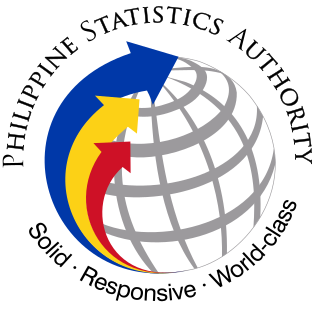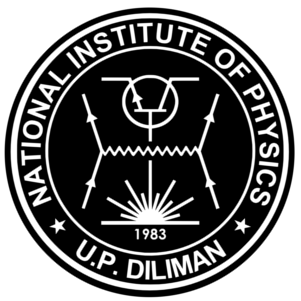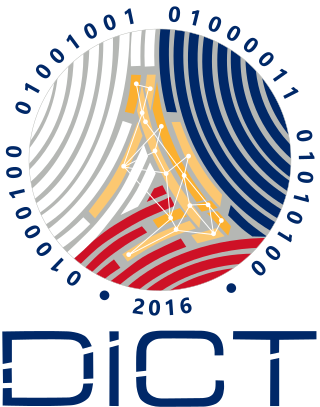
The Philippine Statistics Authority, abbreviated as PSA, is the central statistical authority of the Philippine government that collects, compiles, analyzes and publishes statistical information on economic, social, demographic, political affairs and general affairs of the people of the Philippines and enforces the civil registration functions in the country.

The Philippine Atmospheric, Geophysical and Astronomical Services Administration is the National Meteorological and Hydrological Services (NMHS) agency of the Philippines mandated to provide protection against natural calamities and to insure the safety, well-being and economic security of all the people, and for the promotion of national progress by undertaking scientific and technological services in meteorology, hydrology, climatology, astronomy and other geophysical sciences. Created on December 8, 1972, by reorganizing the Weather Bureau, PAGASA now serves as one of the Scientific and Technological Services Institutes of the Department of Science and Technology.

The Department of Budget and Management is an executive body under the Office of the President of the Philippines. It is responsible for the sound and efficient use of government resources for national development and also as an instrument for the meeting of national socio-economic and political development goals.

The Department of Science and Technology, is the executive department of the Philippine government responsible for the coordination of science and technology-related projects in the Philippines and to formulate policies and projects in the fields of science and technology in support of national development.

The Department of Transportation is the executive department of the Philippine government responsible for the maintenance and expansion of viable, efficient, and dependable transportation systems as effective instruments for national recovery and economic progress. It is responsible for the country's land, air, and sea communications infrastructure.

The National Economic and Development Authority is an independent cabinet-level agency of the Philippine government responsible for economic development and planning. It is headed by the president of the Philippines as chairman of the NEDA board, with the Secretary of Socioeconomic Planning as vice-chairman. A number of Cabinet members, the Governor of the Bangko Sentral ng Pilipinas, the Chairperson of the Metropolitan Manila Development Authority, the Chief Minister of Bangsamoro, the Secretary of Information and Communications Technology, the Chairman of the Subic–Clark Area Development Corporation, and the National President of the Union of Local Authorities of the Philippines are members of the NEDA Board.

The Philippines' Bureau of Agricultural Research, is an agency of the Philippine government under the Department of Agriculture responsible for ensuring that all agricultural research is coordinated and undertaken for maximum utility to agriculture.

Science and technology in the Philippines describes scientific and technological progress made by the Philippines and analyses related policy issues. The main agency responsible for managing science and technology (S&T) is the Department of Science and Technology (DOST). There are also sectoral councils for Forestry, Agriculture and Aquaculture, the Metal Industry, Nuclear Research, Food and Nutrition, Health, Meteorology, Volcanology and Seismology.

The Philippine Institute of Volcanology and Seismology is a Philippine national institution dedicated to provide information on the activities of volcanoes, earthquakes, and tsunamis, as well as other specialized information and services primarily for the protection of life and property and in support of economic, productivity, and sustainable development. It is one of the service agencies of the Department of Science and Technology.

The National Institute of Physics (NIP) was established in 1983 by Presidential Executive Order No. 889 which transformed the Department of Physics of the College of Arts and Sciences into one of the seven research and academic institutes of the University of the Philippines Diliman - College of Science.

The Office of the President of the Philippines, is an administrative, advisory, and consultative government agency that aids the president of the Philippines in performing their duty as head of state and chief of the executive branch of government.

The space program of the Philippines is currently maintained by the Philippine Space Agency (PhilSA) together with various agencies under the Department of Science and Technology (DOST). The space program includes space research and development, and is funded through the National SPACE Development Program (NSDP) by the DOST and received an initial budget of ₱1 billion in 2020.

The Philippine Space Agency (PhilSA) is the national space agency of the Philippines.

The Philippine Research, Education, and Government Information Network (PREGINET) is a national research and education network established in the Philippines by the Advanced Science and Technology Institute of the Department of Science and Technology (DOST-ASTI). The network provides interconnect between research and higher education institutions in the Philippines, and to other international research networks within the Asia Pacific region. PREGINET also manages the PHOpenIX, the only neutral Internet exchange in the Philippines, allowing neutral peering between local Internet service providers and other commercial institutions.

Diwata-1 also known as PHL-Microsat-1 was a Philippine microsatellite launched to the International Space Station (ISS) on March 23, 2016, and was deployed into orbit from the ISS on April 27, 2016. It was the first Philippine microsatellite and the first satellite built and designed by Filipinos. It was followed by Diwata-2, launched in 2018.

Alfredo Mahar Francisco Amante Lagmay is a Filipino geologist. He is executive director of Project NOAH and a professor at the National Institute of Geological Sciences of the University of the Philippines Diliman.

Project NOAH (Nationwide Operational Assessment of Hazard) is the Philippines' primary disaster risk reduction and management program. Managed by the University of the Philippines, it was initially administered by the Department of Science and Technology (DOST) from 2012 to 2017.

The Department of Information and Communications Technology (DICT) is the executive department of the Philippine government responsible for the planning, development and promotion of the country's information and communications technology (ICT) agenda in support of national development.

Fortunato "Boy" Tanseco de la Peña is a Filipino engineer and professor who served as the Secretary of Science and Technology in the Cabinet of President Rodrigo Duterte from 2016 to 2022. Before he assumed leadership of the Department of Science and Technology (DOST), he was the Undersecretary for Scientific and Technological Services from 2001 to 2014. Except for his brief retirement from 2014 to 2016, he has been with the department since 1982.

Joel Joseph Sacro Marciano Jr. is a Filipino engineer, academic and the first and current Director General of the Philippine Space Agency, a government agency under the Office of the President in charge of the Philippines' national space program.





















